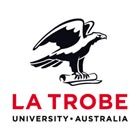- ข่าวและบทความ
- Find usIDP AustraliaIDP BahrainIDP BangladeshIDP CambodiaIDP CanadaIDP ChinaIDP EgyptIDP GhanaIDP Hong KongIDP IndiaIDP IndonesiaIDP IranIDP JordanIDP KenyaIDP KoreaIDP KuwaitIDP LebanonIDP MalaysiaIDP MauritiusIDP Middle EastIDP NepalIDP New ZealandIDP NigeriaIDP OmanIDP PakistanIDP PhilippinesIDP Saudi ArabiaIDP SingaporeIDP Sri LankaIDP Taiwan, ChinaIDP ThailandIDP TurkeyIDP UAEIDP VietnamIDP Corporate
- Social
- ไทย
- Where we operate
- Courses
- Scholarships
- IELTS
- About IDP
- บริการเสริมจาก IDP
- ข่าวและบทความ
- Find us
- Find us
- Find nearest IDP offices
- IDP Australia
- IDP Bahrain
- IDP Bangladesh
- IDP Cambodia
- IDP Canada
- IDP China
- IDP Egypt
- IDP Ghana
- IDP Hong Kong
- IDP India
- IDP Indonesia
- IDP Iran
- IDP Jordan
- IDP Kenya
- IDP Korea
- IDP Kuwait
- IDP Lebanon
- IDP Malaysia
- IDP Mauritius
- IDP Middle East
- IDP Nepal
- IDP New Zealand
- IDP Nigeria
- IDP Oman
- IDP Pakistan
- IDP Philippines
- IDP Saudi Arabia
- IDP Singapore
- IDP Sri Lanka
- IDP Taiwan, China
- IDP Thailand
- IDP Turkey
- IDP UAE
- IDP Vietnam
- IDP Corporate
- Social
- เปลี่ยนภาษา
- IDP Education /
- รูปภาพแบนเนอร์เนื้อหา /
- Australia /
- La Trobe University /
- Bachelor of Politics, Philo...


สถานที่
Australia
คุณสมบัติ
Bachelor Degree
ค่าธรรมเนียม
AUD33800
(2025)
ช่วงเวลา
3 Year(s)
ภาคการศึกษาใหม่
07 March 2025
คะแนนในการยื่นสมัคร
6.0
IELTSCOURSE_INFO
Improve your ability to reason, both critically and empathetically
Develop your knowledge of political institutions and their histories, so as to understand the opportunities and constraints that frame the formulation of policy.
Advance your understanding of how the economy works, in a world of interdependent and global markets.
Advance both your literacy and your numeracy, so that you can undertake nuanced analyses that require both qualitative and quantitative skills.
Grasp how the disciplines of politics, philosophy and economics each throw a different yet interconnected light on the many practical problems that we face in our societies and in our everyday lives.
Balance broad coverage of all three PPE disciplines with a specialisation in politics, philosophy, economics, political economy or political philosophy.
Understand the variety of approaches that comprise the history of economic thought, and consider the relevance of these competing approaches for understanding today's economies.
Engage professionally and communicate effectively with individuals, organisations, and communities in a manner that is respectful of their needs, values, and capabilities.
The major in Political Economy can only be taken by students in either the Bachelor of Politics, Philosophy and Economics or the double degree with Law (LLB (hons) PPE). The goal of the Political Economy major is two-fold. First, in conjunction with PPE degree cores, the major’s core units ensure that students cover a minimum amount of Economics, Politics and Philosophy in the degree overall. Second, core-choice in the major then allows students to specialise in one of three different types of political economy, cultivating the knowledge and skills that you can later employ in specific types of jobs. Students may choose to hone the skills that study the political economy of inequality (analysing how economic marginalisation occurs along axes of gender, race, religion, class, and other identity categories). Or students can analyse the political economy of global institutions (analysing the impact of the behaviour of states and other global actors on the organisation of our economies). Or students can study the political economy of climate crisis (analysing how power and business interests undermine our ability to solve collective action problems, and what opportunities might exist to overcome this). This major will equip you with skills and knowledge to understand how economies might be reoriented, and how the behaviour of consumers and producers might be modified (through incentives and institutions) to achieve particular social objectives.
Undertaking a major in Political Economy will connect you with experts in economics, politics, political theory, ethics, development studies, sociology, public health, and environmental humanities. It will also prepare you for a variety of jobs (concerned with various types of inequality, global institutions, and the climate crisis) which will require intersecting and interdisciplinary skills.
- ทุนการศึกษา ดูทุนการศึกษาทั้งหมด
- ฝึกงาน
ข้อกำหนดในการสมัคร La Trobe University
Australian Tertiary Admission Rank: 65.35
International Baccalaureate: 24
6.5 IELTS (Academic) with no individual band less than 6.0.
TOEFL Internet based (iBT): Overall score of 79 with 13 in Reading, 12 in Listening, 18 in Speaking and 21 in Writing
Cambridge Certificate of Advanced English (CAE)- 176 with no less than 169 in any component
ปิดรับสมัคร
ยังไม่มีวันกำหนดส่งใบสมัคร พูดคุยกับที่ปรึกษา IDP เพื่อขอข้อมูลเพิ่มเติม
Further information
If you aren't eligible for the above entry requirements, you might ant to explore pathway options at La Trobe University. If you want to find out more, speak to our counsellors.
อันดับมหาวิทยาลัยชั้นนำของโลก
251st / 1250
อันดับมหาวิทยาลัยชั้นนำของโลกนักเรียนของเราคิดเห็นอย่างไร
ยังไม่มีความคิดเห็นเกี่ยวกับสถาบันนี้
แนะนำสำหรับคุณ
- ปริญญาตรี
- Australia
- ประเภททุนการศึกษา: Fee waiver/discount
- ปริญญาตรี
- Australia
- ประเภททุนการศึกษา: Fee waiver/discount
- ปริญญาตรี
- Australia
- ประเภททุนการศึกษา: Fee waiver/discount
- ปริญญาตรี
- Australia
- DEADLINE: 11 Feb 2025
- ประเภททุนการศึกษา: Fee waiver/discount
- ปริญญาตรี
- Australia
- ประเภททุนการศึกษา: Fee waiver/discount
- ปริญญาตรี
- Australia
- ประเภททุนการศึกษา: Fee waiver/discount
- ปริญญาตรี
- Australia
- ประเภททุนการศึกษา: Fee waiver/discount
- ปริญญาตรี
- Australia
- ประเภททุนการศึกษา: Fee waiver/discount
Your action plan
ขั้นตอน 1
Shortlist your courses
Choose the best three courses you’re most likely to pursue.
ขั้นตอน 2
Check your eligibility
Get an instant in-principle offer for courses with the IDP FastLane tag.
ขั้นตอน 3
Apply through IDP Live
Fill out the form once and use it to apply to multiple courses.
IDP FastLane ทำงานอย่างไร?
ด้วย 'ข้อเสนอตามหลักการ' ของ FastLane คุณจะรู้ได้ในไม่กี่นาทีว่าคุณจะได้รับการตอบรับหรือไม่!
เลือกสถาบันและหลักสูตร
สร้างประวัติการศึกษาของคุณ
ส่งใบสมัครของคุณเพื่อรับ 'ข้อเสนอในหลักการ'
สถาบันที่คุณเลือกจะส่งผลตอบรับถึงคุณภายในไม่กี่นาที!
เตรียมสมัครกับที่ปรึกษาผู้เชี่ยวชาญ




